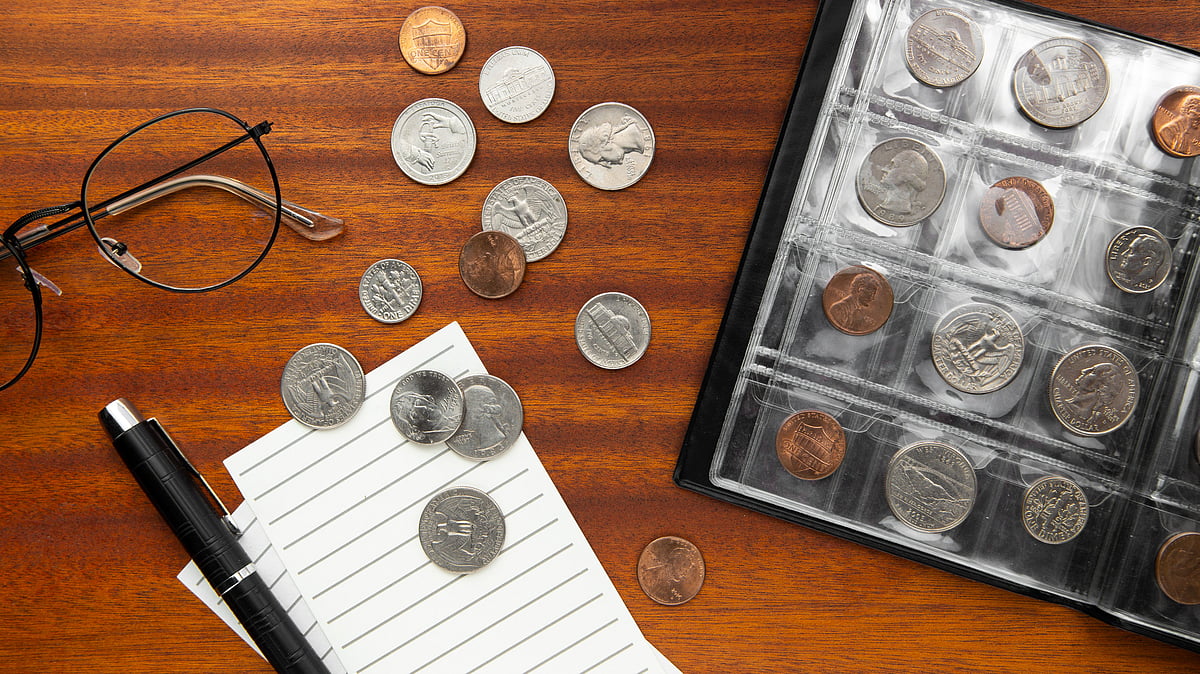Be it for the artistic value or for the stunning visual references they provide, no doubt coins are the crowning intersection of history, art and economics. Hence, treasuring these artefacts by collecting them is now turning into a popular hobby for those wishing to enrich their lives with something exciting, affordable and educational.
Here’s a guide on how to step into this new activity and reap the most out of it.
Types of coins
Before stepping into this activity, it’s important for people to understand the different types of coins available out there to add to your collection.
Error coins: Error coins are ones that contain some common mistake in minting that appraises their value. Considered a valuable collector’s item, they become all the more treasured if they are rare or in good condition.
Proof coins: Carrying a distinctive visual appeal, these coins are designed specifically for collectors and are finished to the highest quality. In terms of the value scale, they are considered to lie higher than uncirculated coins in ranking.
Commemorative coins: Commemorative coins mark special occasions while circulating coins are used for ordinary everyday purposes. Known to mark a specific historic date or event, they carry immense value in their own right.
Bullion coins: Crafted of precious metals like gold or silver, bullion coins are remarkably high in value owing to their intrinsic material. Ancient coins on the other hand carry significant historical relevance with them.
Sourcing
As complex as sourcing coins may seem to some, your collection can start from places as accessible as the loose change your pocket to looking up and purchasing collector coins online from commercial websites. To induce a feeling of community spirit in the hobby, it’s advised to try and join online coin swap communities and regularly talk to experienced collectors to lay your hands on the best deals and coins out there.
Categorisation
Once you’ve successfully figured out a way to source your coins, you can then decide which category of collection you want to build. This process starts with discovering what interests you about this hobby in the first place. If you’re interested in a particular theme, your collection could be categorised thematically. If you’re a history buff, you could collect coins related to a specific period that narrates a unique story. Based on a coin’s value, your collection could be based on the type or denomination of all years or mint marks. Collecting coins on the basis of their country of origin, on the other hand, is a great way to learn about the specific history and culture of foreign lands.
Tools and equipment
Though not necessary, to ensure extra care it’s advised to buy a pair of cotton or latex gloves along with a soft towel or pad to handle and hold your coins safely. Purchase coin holders or albums to store your coins for longer durations and try to get a magnifying glass to study your coins better and add to the thrill of this activity.
Preserve and store
Given their fragile nature, it’s advised to hold coins by the edge to avoid fingerprints and natural skin oils from damaging the surface. While coins of lesser value can be kept in a coin tray or cabinet, special air-tight envelopes can be used with their more valuable counterparts to preserve them from oxidation and scratches.
“Coins should be either preserved in premium quality acid free polymer sheets which don’t release liquids over the period, don’t get thick and eventually torn and the more expensive ones can be kept in unbreakable polycarbonate coin capsules. Secondly, you should never clean a coin with any chemicals. You can simply clean a coin with a silky cloth. Even applying water can rust the coin over time as most of them are made from copper and nickel and chemicals will finish the life of a coin,” shares Kushal Jayesh Gala, CEO of Collectibles Khazana & Kacper, an e-commerce platform catering to collectible items.
Cost involved
Before starting this activity, take a moment to understand your motivation for doing this, be it a long-term investment plan or pure interest. Once you’ve decided on this, draw out a clear budget for yourself and do thorough research on the subject to understand market rates. Before buying a coin, always ask yourself whether it’s the type you like and can afford; if the response to either of these questions is negative, it’s probably not the right addition to your collection.
“Historically, collectibles like coins have shown least correlation with the traditional asset classes like gold, stock market. So in a way you can hedge your investments. Even during the aftermath of covid pandemic when the financial markets tumbled, coin prices in fact went up,” shares Kushal.
Though the motivation to start may vary, the pure thrill and joy of indulging in this new and exciting hobby is bound to get you hooked in no time.
